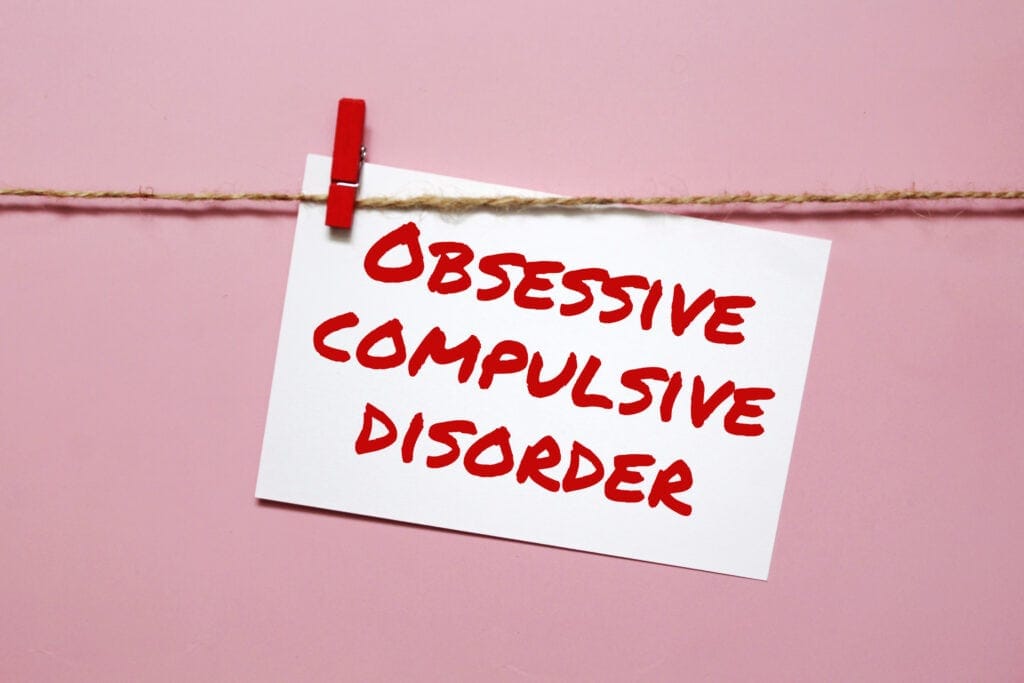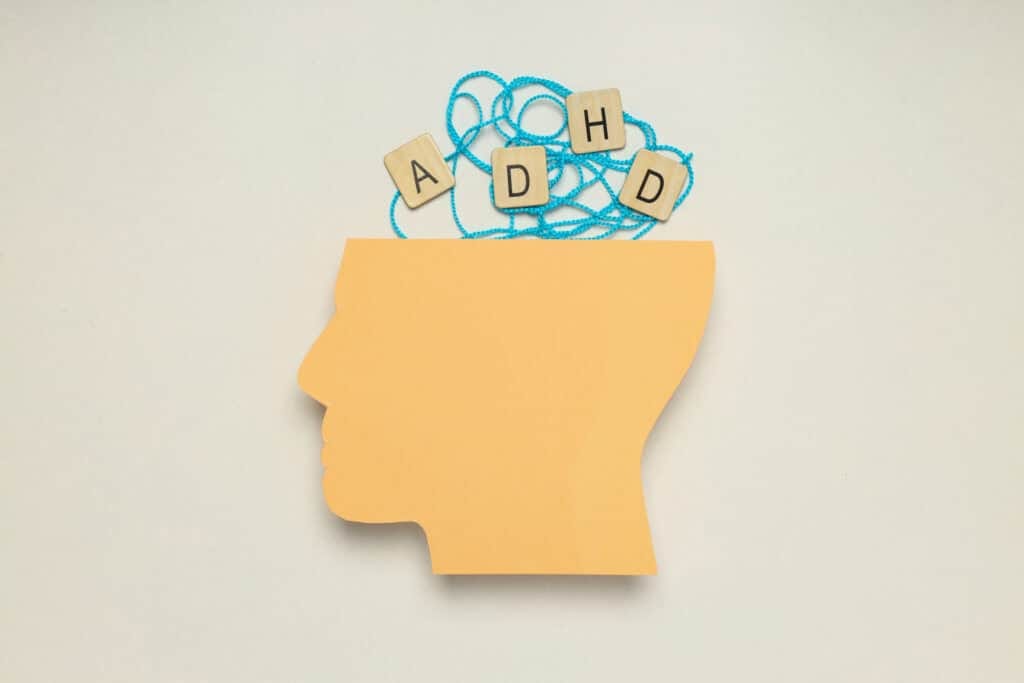Obsessive-compulsive disorder, or OCD, is a mental health condition that affects millions of people worldwide. If you have OCD, you may experience unwanted, intrusive thoughts, images, or impulses that cause you significant distress. These thoughts are called obsessions, and they can lead to repetitive behaviors or mental acts that you feel compelled to perform, known as compulsions.
OCD can manifest in many different ways, and the severity of symptoms can vary widely from person to person. Some common types of OCD include contamination fears, which involve excessive cleaning or avoidance of certain objects or places; checking compulsions, which involve repeatedly checking locks, appliances, or other items to ensure they are secure; and intrusive thoughts, which involve unwanted, disturbing thoughts that can be violent, sexual, or blasphemous in nature. While these thoughts are distressing to the person experiencing them, it’s important to note that having them does not mean you are a bad person or that you will act on them.
If you think you may have OCD, it’s important to seek help from a mental health professional. Treatment for OCD typically involves a combination of medication, therapy, and lifestyle changes, and can be highly effective in reducing symptoms and improving quality of life. With the right support and resources, you can learn to manage your OCD and live a fulfilling, meaningful life.
What is Obsessive-Compulsive Disorder?
Obsessive-Compulsive Disorder (OCD) is a mental health condition that affects both men and women of all ages, including children. OCD is characterized by a pattern of unwanted and intrusive thoughts, images, or impulses (obsessions) that cause anxiety and distress. To relieve this anxiety, individuals with OCD engage in repetitive and ritualistic behaviors (compulsions) that temporarily reduce the anxiety.
Definition
OCD is a type of anxiety disorder that can significantly interfere with daily activities and cause distress. OCD is diagnosed when obsessions and compulsions are time-consuming, interfere with daily activities, and cause significant distress. OCD is classified as a disorder in the Diagnostic and Statistical Manual of Mental Disorders (DSM-5).
Symptoms of OCD
The symptoms of OCD may vary from person to person but typically involve a combination of obsessions and compulsions. Common obsessions include fears of contamination, harm, or unwanted sexual thoughts. Compulsions may involve excessive cleaning, checking, counting, or arranging objects to reduce anxiety.
Causes of OCD
The exact cause of OCD is unknown, but it is believed to involve a combination of genetic, environmental, and neurological factors. Some risk factors for developing OCD include a family history of OCD, childhood trauma, and certain infections.
Diagnosis
A healthcare provider may diagnose OCD based on a physical exam, medical history, and psychological evaluation. Tests may be conducted to rule out other medical conditions. A diagnosis of OCD is made if the obsessions and compulsions significantly interfere with daily activities and cause distress.
Cognitive-behavioral therapy (CBT) is an effective treatment for OCD. CBT involves exposure therapy and response prevention to help individuals with OCD learn to manage their symptoms. Medications may also be prescribed to help manage symptoms.
Overall, OCD is a distressing mental health condition that can significantly impact an individual’s quality of life. However, with appropriate treatment, individuals with OCD can learn to manage their symptoms and improve their overall well-being.
Types of OCD
Obsessive-compulsive disorder (OCD) is a mental health condition that causes individuals to have unwanted, intrusive thoughts, images, or urges (obsessions) that lead to repetitive behaviors or mental acts (compulsions) aimed at reducing anxiety or preventing something bad from happening. OCD can be categorized into various types based on the nature of obsessions and compulsions.
Contamination and Cleaning OCD
This type of OCD involves an excessive fear of germs, dirt, or illness that leads to compulsive washing or cleaning rituals. Individuals with contamination OCD may excessively wash their hands, repeatedly clean surfaces, or avoid contact with objects or people they consider dirty. These rituals can be time-consuming and interfere with daily activities, leading to distress and impairment in quality of life.
Checking OCD
Checking OCD involves repeated checking of things, such as locks, appliances, or switches, to prevent harm or damage. Individuals with checking OCD may check multiple times, even when they know they have already checked, leading to significant distress and disruption in daily life.
Ordering and Arranging OCD
This type of OCD involves an obsession with symmetry, order, or specific patterns, leading to compulsive behaviors such as arranging objects in a particular way or following rigid routines. Individuals with ordering and arranging OCD may spend excessive amounts of time arranging items or become upset when things are not in a specific order.
Harm OCD
Harm OCD involves intrusive thoughts or images of causing harm to oneself or others, leading to compulsive behaviors such as avoiding certain objects or situations or repeatedly seeking reassurance that no harm has been caused. Individuals with harm OCD may experience significant distress and avoid social situations or activities to prevent harm.
Sexual OCD
Sexual OCD involves unwanted and intrusive sexual thoughts or images, leading to compulsive behaviors such as avoiding certain people or situations or repeatedly seeking reassurance that no harm has been caused. Individuals with sexual OCD may experience significant distress and avoid social situations or activities to prevent harm.
Religious OCD
Religious OCD involves obsessions related to religious or moral beliefs, leading to compulsive behaviors such as excessive prayer or avoidance of certain situations or people. Individuals with religious OCD may experience significant distress and feel conflicted about their beliefs.
Hoarding OCD
Hoarding OCD involves an excessive attachment to objects and difficulty discarding them, leading to clutter and disorganization that interferes with daily activities. Individuals with hoarding OCD may experience significant distress and avoid social situations or activities to prevent harm.
In conclusion, OCD can manifest in various types, each with its unique set of symptoms and compulsions. If you or someone you know is experiencing distressing thoughts and repetitive behaviors, it is essential to seek appropriate treatment, such as cognitive-behavioral therapy or medication. With appropriate treatment, individuals with OCD can experience an increased quality of life and manage their symptoms effectively.
Treatment for OCD
If you have been diagnosed with obsessive-compulsive disorder (OCD), there are several treatment options available to help manage your symptoms. The appropriate treatment for OCD will depend on the severity of your symptoms, your personal preferences, and other factors. In this section, we will explore three common treatment options for OCD: psychotherapy, exposure and response prevention, and medication.
Psychotherapy
Psychotherapy, also known as talk therapy, is a common treatment option for OCD. Cognitive-behavioral therapy (CBT) is a type of psychotherapy that has been shown to be effective in treating OCD. CBT for OCD typically involves exposure and response prevention (ERP), which we will discuss in more detail below.
During CBT sessions, you will work with a therapist to identify and challenge the irrational thoughts and beliefs that contribute to your OCD symptoms. You will also learn coping strategies to help manage your symptoms and prevent relapse. CBT for OCD is typically conducted on a weekly basis and can last for several months.
Exposure and Response Prevention
Exposure and response prevention (ERP) is a specific type of CBT that is often used to treat OCD. ERP involves gradually exposing yourself to situations or objects that trigger your OCD symptoms while refraining from engaging in the compulsive behaviors that typically follow.
For example, if you have a fear of contamination, your therapist may gradually expose you to increasingly dirty or germy objects, while teaching you coping strategies to manage your anxiety and resist the urge to wash your hands excessively. ERP can be challenging, but it has been shown to be highly effective in reducing OCD symptoms.
Medication
Medication can also be an effective treatment option for OCD. Selective serotonin reuptake inhibitors (SSRIs) are a type of antidepressant that can help reduce OCD symptoms. Commonly prescribed SSRIs for OCD include fluoxetine (Prozac), sertraline (Zoloft), and fluvoxamine (Luvox).
It is important to note that medication alone is typically not enough to manage OCD symptoms. Medication is often used in combination with psychotherapy or ERP for best results. Additionally, it may take several weeks or months for the medication to take effect, and side effects can occur.
In summary, there are several effective treatment options available for OCD, including psychotherapy, exposure and response prevention, and medication. The appropriate treatment for you will depend on the severity of your symptoms and other individual factors. With appropriate treatment, many people with OCD are able to manage their symptoms and improve their quality of life.
Living with OCD
Living with obsessive-compulsive disorder (OCD) can be challenging and distressing. OCD is a mental health disorder characterized by distressing thoughts (obsessions) that lead to ritualistic behaviors (compulsions). These compulsions can interfere with daily activities and quality of life. In this section, we will explore the impact of OCD on daily life, relationships, and coping strategies.
Impact on Daily Life
OCD can significantly impact daily life. The compulsions associated with OCD can be time-consuming and interfere with daily activities. For example, excessive cleaning or washing can take up a significant amount of time, making it difficult to complete other tasks. Additionally, the need for routine and perfectionism can make it challenging to adapt to changes in the environment.
Relationships
Living with OCD can also impact relationships. Ritualistic behavior can be difficult for others to understand, leading to frustration and misunderstandings. Furthermore, the need for control and order can lead to conflicts with family members and friends.
Support and Coping Strategies
If you are living with OCD, it is essential to seek appropriate treatment to manage symptoms and improve your quality of life. Cognitive-behavioral therapy (CBT) is an effective treatment for OCD. CBT involves identifying and challenging irrational thoughts and behaviors related to OCD.
In addition to CBT, medication can also be helpful in managing symptoms. Selective serotonin reuptake inhibitors (SSRIs) are commonly prescribed to treat OCD. However, it is essential to discuss potential side effects and risks with your healthcare provider.
There are also several coping strategies that can help manage symptoms of OCD. These include:
- Identifying triggers and avoiding them
- Practicing relaxation techniques, such as deep breathing and meditation
- Engaging in physical activity to reduce stress and anxiety
- Seeking support from friends and family
- Joining a support group for individuals with OCD
Living with OCD can be challenging, but with appropriate treatment and support, it is possible to manage symptoms and improve your quality of life.










